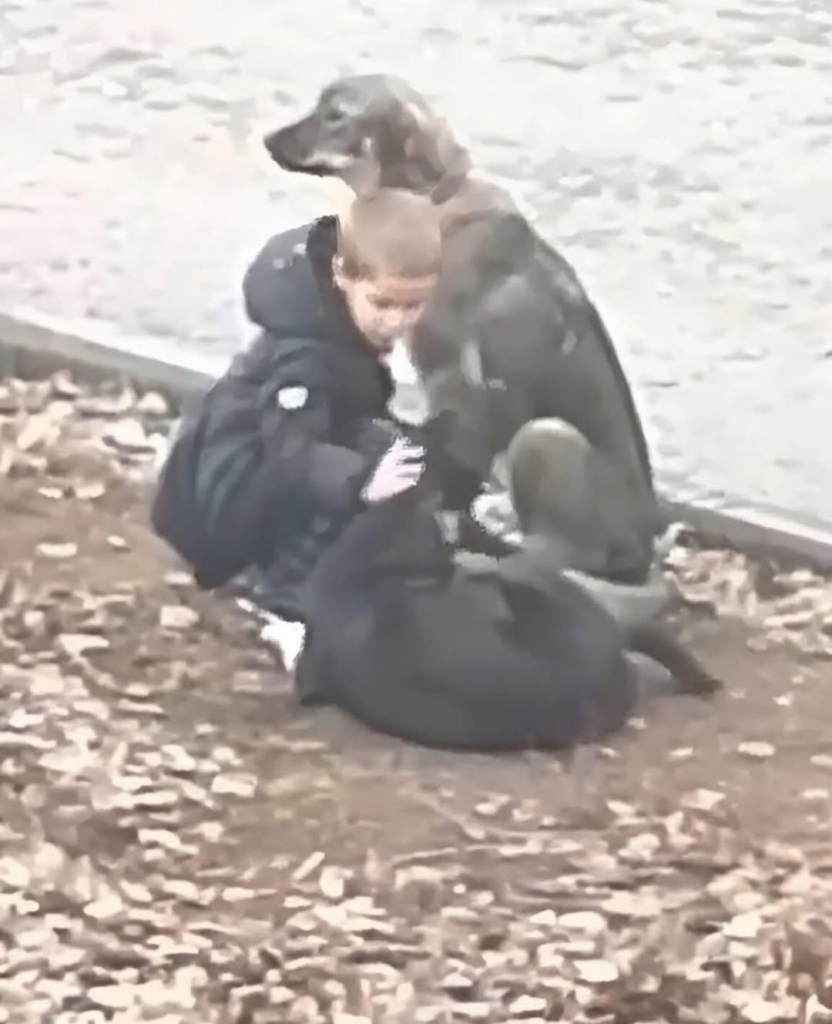Every afternoon as the school bell rings and children spill through the front door, Caroline’s son Ethan walks in carrying nothing more than a crumpled, empty lunch bag. Day after day he comes home without having eaten a single bite—and Caroline was baffled. She double-checked that he actually took his lunch. She asked teachers. She watched him closely. But there it was: that same forlorn lunch bag, unmistakably empty.
For weeks, Caroline’s curiosity and worry grew. She wondered if there had been a mix-up. Was Ethan being bullied? Was he trading his lunch? Was he too shy—or too hungry—somewhere else? Every night she sent him to bed with one nagging question: “Where does your lunch go?”
One afternoon, after a particularly bewildering day, Caroline discreetly turned on the family’s security camera. She knew Ethan’s stroll home was uneventful—but she wanted to finally understand what was really happening. What she saw stopped her cold.

Just beyond their gate, two fragile stray dogs sat shivering. Tail unfurled, ribs showing through their fur. Ethan approached as softly as a whisper. He knelt down in the warm rays of afternoon light, unzipped his lunch bag, and took out every remaining crumb. He offered it to them.
He didn’t just leave the food. He talked to them, as if they understood every word. He held them, gave them soft pets, even wrapped his arms around them while whispering something tender and quiet. He held them close—giving what little he had, though it was everything to him.
When Caroline later asked him why he’d done it, Ethan looked at her and answered simply, with a quiet gravity beyond his years:
“They don’t have a mom to pack them food. But I do.”
That answer—so ordinary, so unforced—shone with a clarity that doesn’t come easily in adulthood. That innocence, that empathy, that willingness to give even when it costs him—reveals a truth we often overlook: that true kindness doesn’t ask who is deserving. It only asks what someone needs.
In that moment, Caroline realized how profound that act of compassion was. She’d always believed her little boy was caring—but she never realized how deeply that care ran. Every day, without fail, he chose to feed others before himself. Not because it was convenient. Not because anyone watched. But because he could.